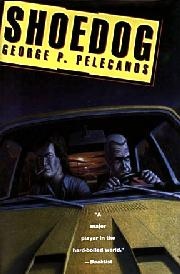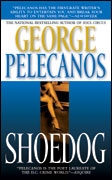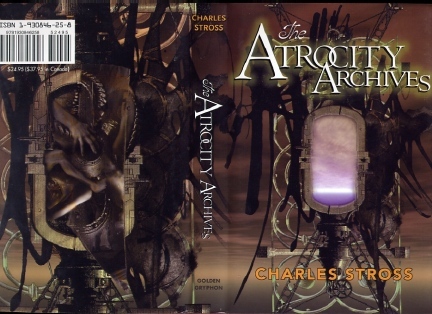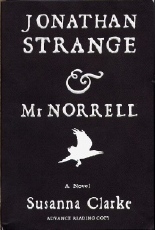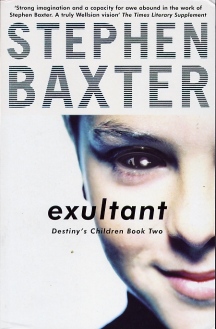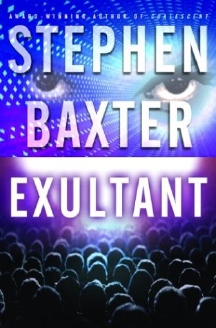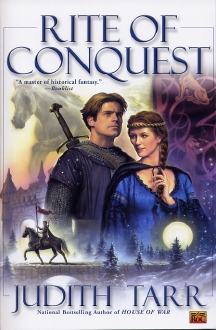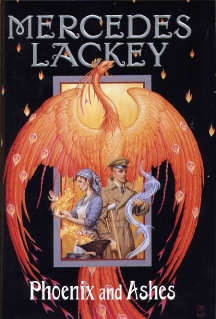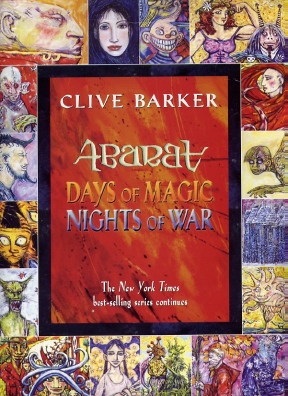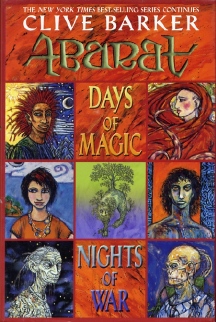|
|
|
This Just In...News from the Agony Column
|
09-24-04: The Scarlet Gospels |
|||
A
Conversation With Clive Barker
But inside the studio, time had taken a vacation. I got a lot of answers to questions that had been hanging about in my mind for many years. Clive talked about selling 'The Books of Blood', that famous ("monkey on my back") Stephen King quote and his appearance on the Today Show with King. We covered the making of 'Hellraiser', and he talked extensively about his latest work, 'Abarat: Days of Magic, Nights of War'. We talked about sexuality in horror and fiction, about myths and about publishing children's fiction. He talked about his latest movie, the upcoming 'Tortured Souls', which he wants to be a full-bore tale of terror. It was one of those interviews where I barely had to suggest anything and Clive could offer a riveting, entertaining response. Readers can now download the interview in two formats and two parts. You can get Part One in MP3 or RealAudio format, and Part Two in MP3 and RealAudio format. Forget talk radio; here's your drive time listening for a couple days, assuming your commute is not so hellish as the one I undertook when I lived in Southern California. We were on a strict budget back then, and every other week I had $40.00 to spend at Aladdin Books in Fullerton, California. Heady days, those; reading Barker while my wife drove myself and our two kids over the scarred Southland landscape in a commute that was almost two hours in each direction -- traffic permitting. The reward, cutting edge horror, and memories of reading that will last a lifetime. I was reading Clive Barker then, and I'm still reading Clive Barker. With luck, in twenty years, I'll still be reading Clive Barker. |
|
09-23-04: From Rare First to Mass Market Paperback; Collector's Notes and Notices |
||||||
| George
P. Pelecanos' 'Shoedog' Hits the Racks by Terry D'Auray
|
||||||
Strange Delivery, Atrocity Archives Reprint
A book that I'm pretty sure will be on many readers "Year's Best" lists is 'The Atrocity Archives' by Charles Stross. If you've been on the fence about whether or not to buy this book, now is the time to make a decision. Marty Halpern, the editor over at Golden Gryphon writes to tell me that the book is going into a second priting, but readers who want to get a first printing still can if they buy now from someone who has them in stock, or directly from Golden Gryphon. Remember that it is always best to support a small-press publishers as directly as possible. That way they stay in business and you keep getting the books you enjoy.Second printings are shipping next week. And even if you have to buy a second printing, it's really worth it. Golden Gryphon's hardcover is beautifully designed and produced. In several year's time, those who are buying the latest Stross novel will be kicking themselves for not picking up this limited edition, small press hardcover when they could.
Furthermore, note that the UK edition just came out this week, and that author Susanna Clarke is beginning her tour through the US. If you'd like a signed copy or simply to meet the fascinating writer of this NYT bestseller, then , in the US, you can go to this difficult to find URL and find out if, when and where she's appearing in your town. UK readers can find her appearances by going to this URL. |
|
09-22-04: From 'Coalescent' to 'Exultant' |
||||||
Stephen
Baxter's 'Destiny's Children Book II'
'Exultant' starts 25 centuries later. So, OK, some time has passed. Humans have survived the Xeelee invasion, and thrived, led by the "Coalition". In terms of leadership, well, while 25 centuries may have passed, politics hasn't changed much at all. You're expected to live bravely and die young. And you know, if that's the case, why bother to survive into the future? Seems utterly futile to me. Apparently I'm not the model upon which future humanity is built, and future humanity is probably the better for it. And the sequel to 'Coalescent' certainly is.
Of course, given that much science fiction is not actually about the future but about the present, dressed in the clothes of the future, we can take small comfort from that fact. And then, that whole "fight hard, die young" scenario seems to make a whole lot more sense. Yes, the future may be safe as houses. But the present, damn, that's another matter entirely. And the questions start to mount. Where's the galactic center, really? And who are those unknowable aliens, inimical enemies? And the answers are every bit as frightening as 25 centuries of conflict. |
|
09-21-04: Judith Tarr and Mercedes Lackey Mind the Gap |
||||||
Add
Magic to History and Build a Bridge to the Historical Fantasies 'Rite
of Conquest' and 'Phoenix and Ashes'
Judith Tarr's 'Rite of Conquest' (Roc / Penguin Putnam; October 5, 2004; $16.00) is a trade paperback original about the wild -- and magical -- youth of William the Conqueror. For five hundred years, the Saxons have ruled England, crushing the magic with weaponry and Christianity. But the magic's by no means gone. Across the Channel, in Normandy, William -- the bastard son of a duke and a Druid witch -- is growing into his own and showing the skills for battle that will win him respect. But he has little interest in magic, and without magic, he may not earn his destiny. To learn magic, to learn even an interest in magic, he needs a teacher. A beautiful French noblewoman (as opposed to the many historically ugly ones) named Mathilda, is going to have to rein him in so that he may learn to use his innate abilities lest they destroy him.
Two novels minding that gap between the mainstream and genre fiction, continuing to blur the lines until all that's left is just fiction. The brave writers who create them; the enterprising publishers who produce the books; the [how many?] readers who buy and enjoy them. It's a novel in the making; and readers, of course, are the final unknown force that could win the day for our brave writers. Is life itself a historical fantasy? We've certainly got to admit that fantasy has become a more important part of all our lives -- on every level. And, of course, we've got to mind the gap. |
|
09-20-04: Clive Barker at the Commonwealth Club 09/22/04 |
|||||||||
'Days of Magic, Nights of War'
I've enjoyed numerous, memorable reading and signing experiences with Clive Barker. Back in 1987, I took my then not-quite-two-year old son with me to a signing at -- where else -- Change of Hobbit. We still have the Hellraiser poster with Clive's signature to my son, but it was years before we really felt comfortable hanging it in his room. So now, here we are, firmly in the future of horror that was once handed to Barker by Stephen King, who probably should have called himself the future of horror. Clive writes much more than horror these days. He showed this inclination early on, as there were scenes in the novel 'Imajica' -- scenes of wonder -- that were every bit the equivalent of the scenes of terror he'd specialized in. He's since gone further down the path of wonder and fantasy to end up writing the 'Abarat' series.
Like many readers, the hype that surrounded 'Abarat' made me really cautious. But when I finally got round to reading the first book in the series, I was hooked. Now, the second novel is out, 'Days of Magic, Nights of War' (Joanna Cotler Books / HarperCollins, September 21, 2004, $24.99), and I'm even more convinced. Visually and in prose, Barker seems to writing true to his very strange heart. These books are really, really weird and yet sunny, happy, dark, scary and every other damn emotion -- and color -- that Barker can cram between the covers.
Back to Barker himself. I'll be really curious to hear what he has to say at his appearance, and believe me, you'll get a more in-depth report than you might expect. In the interim, if you're local enough to make it there live, then by all means take the opportunity to do so. Artists of barker's enormous talent -- he's proved himself as a movie director, as a prose writer, as an artist and a movie producer -- are all too rare. Especially those who take chances the way Barker does. Let Barker take the artistic risks -- that's OK. Readers should not risk missing him speak live. Look, here's your choice -- Nuclear Disarmament or Clive Barker? Apocalypse or the Abarat Archipelago? Can't we have both? Reality seems to be supplying nights of war; we'd best get our days of magic with Barker while the getting is good. |

